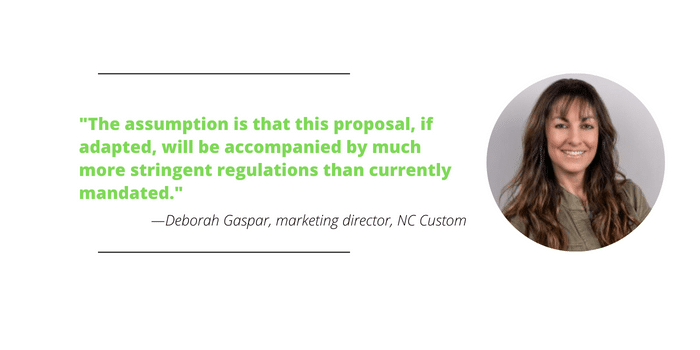Last month the Food Safety Administration Act was introduced. The proposed act would establish the creation of the Food Safety Administration, which would take food safety oversight away from the umbrella of the Food and Drug Administration (FDA).
The Proposed Act
As a branch of the U.S. Department of Health and Human Services, the FDA is in place to protect public health by assuring the safety, effectiveness, quality and security of human and veterinary drugs, vaccines, specific biological products and medical devices. But it is also intended to oversee the safety and security of most of the country’s food supply and certain related products.
The Food Safety Administration Act would take the food supply out of the FDA’s purview by creating the Food Safety Administration. It would place existing FDA food programs under the new administration, separating food oversight from drugs and other FDA-related areas and products.
- The act was introduced by Rep. Rosa DeLauro (D-CT) and Sen. Dick Durbin (D-IL) and cosponsored by Senator Richard Blumenthal (D-CT) and U.S. Representatives Nannette Diaz Barragan (D-CA)), Jimmy Panetta (D-CA), Gwen Moore (D-WI), Sheila Jackson Lee (D-TX) and Bonnie Watson Coleman (D-NJ).
- According to a fact sheet provided with the bill, the FDA currently regulates approximately 80% of America’s food supply, despite also overseeing the expansive regulation of drugs and vaccines. The bill claims that one in six Americans fall ill from foodborne illnesses each year.
- “The sad reality is that FDA seems unwilling or unable to use their authority to protect Americans from preventable illness and death,” Durbin says. “For that reason, Congresswoman DeLauro and I are introducing legislation to transfer all of the FDA’s food responsibilities to a new agency that, we hope, will have more success in protecting the foods in our kids’ lunch boxes and on our dining room tables.”
How It Affects Promo
PPAI’s public affairs manager, Maurice Norris says that it is too early to definitively ascertain the impacts on this industry, considering it has not passed yet.
Food-related promotional products must currently adhere to FDA regulations. Under the proposed act, it is unclear that these regulations would change drastically beyond organically evolving rules based on new information. These companies would, however, be beholden to meeting the requirements of a new administration more specifically focused on food safety.
“This is a welcome proposal,” says Deborah Gaspar, marketing director of NC Custom, which specializes in chocolate and candy-related promotional products. “At NC Custom, our standards are presently in line with current regulations.”

There remains the possibility that the new Food Safety Administration would increase regulations based on its ability to put more resources toward developing the safest measures for the American people. Gasper points out that there are also safety certification programs, such as the Safe Quality Food Program (SQF), that lend credibility to a business.
“We have been Safe Quality Food ( SQF) Program certified for 10 years,” Gaspar says. “SQF is a rigorous and credible food safety and quality program that is recognized by retailers, brand owners and food service providers globally.”
Meeting the standards of such programs and certifications should help any business be prepared to meet any government regulations, as well.
“The assumption is that this proposal, if adapted, will be accompanied by much more stringent regulations than currently mandated,” Gaspar says. “Those suppliers that do not already adhere to the current [Global Food Safety Initiative] standards will need to devote additional resources towards compliance.”
In Norris’s opinion, if the legislation passed, it would be important for Congress to be “prescriptive with the scope of the new agency’s authority” to not create confusion or even competitiveness between the new Food Safety Administration, the FDA and other federal entities charged with ensuring Americans’ foods.


